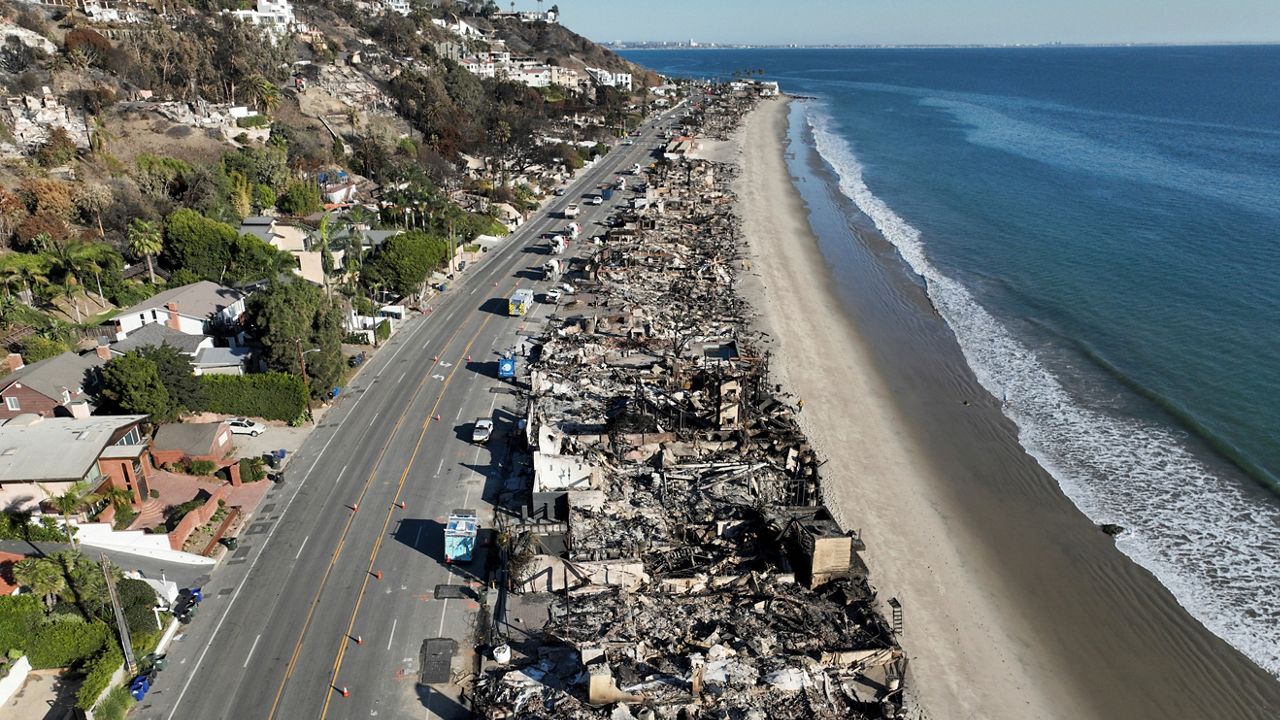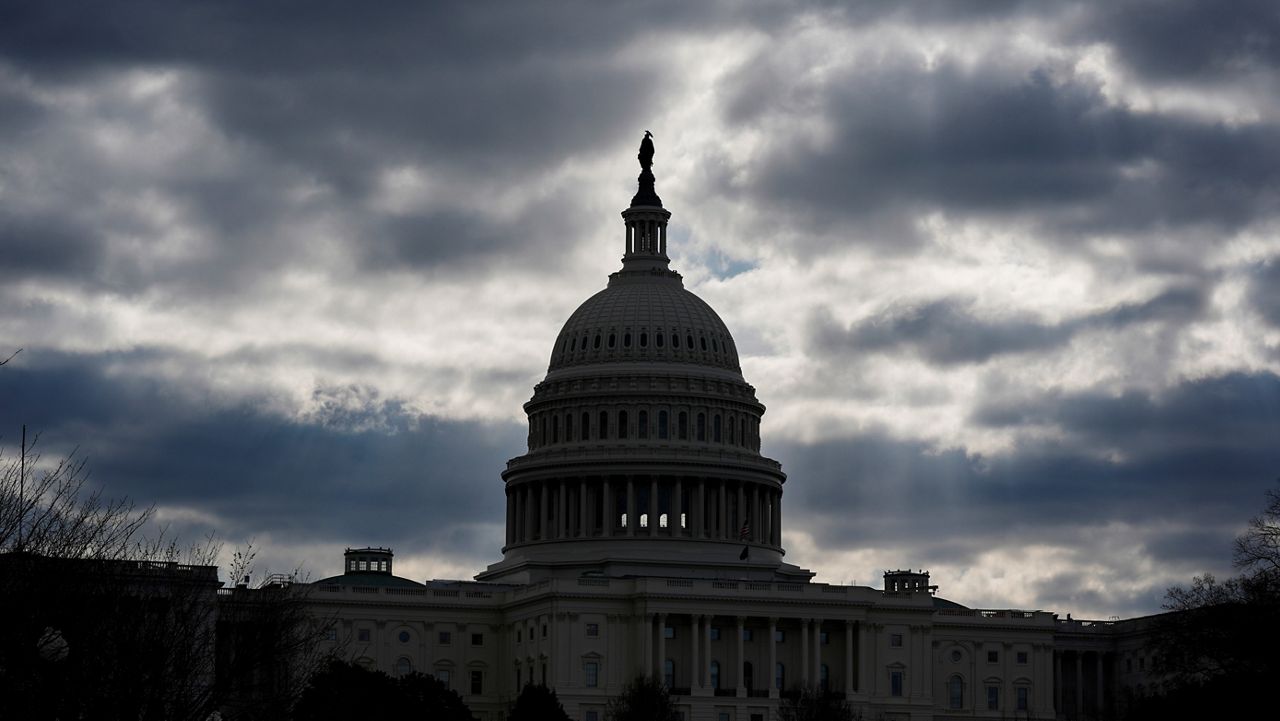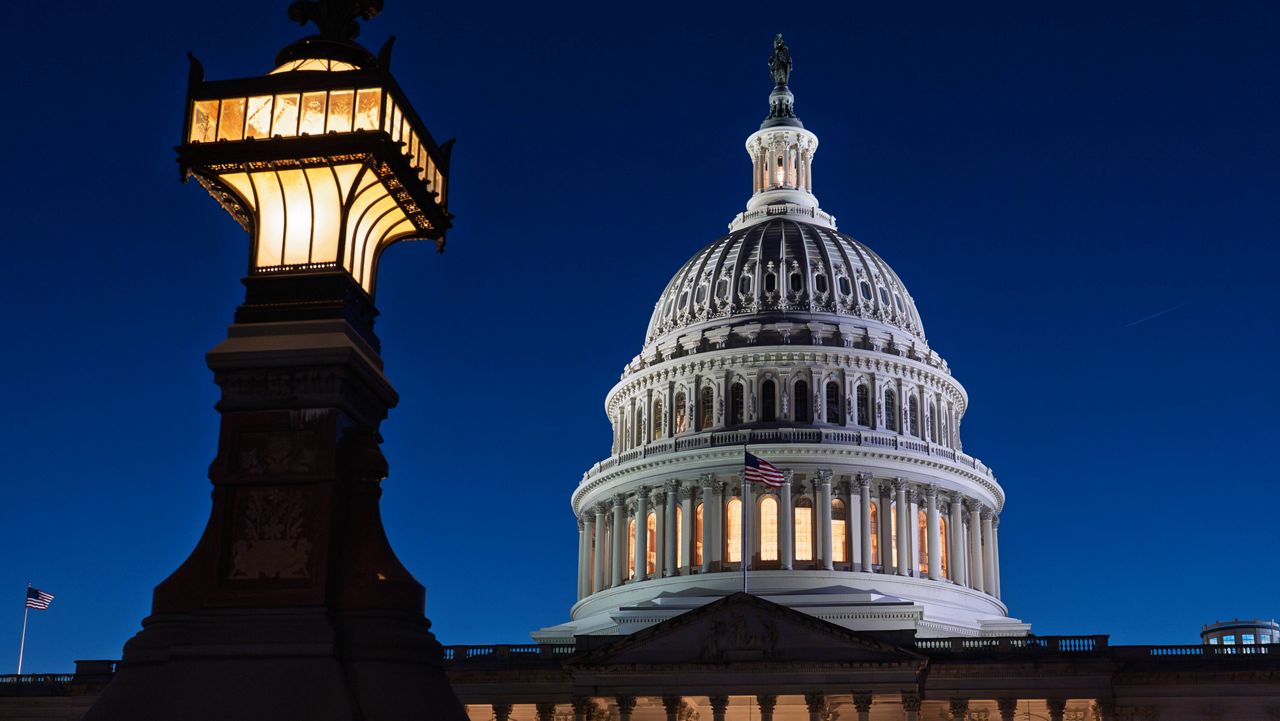“This is a picture of my son, Drew. This was taken about a week before he passed away. He always had a smile on his face – he made cancer look easy, and we know it wasn't. And you did it for us,” said Tammy Tesson Pullman, a mother and grandmother from Villa Ridge, Missouri during a visit this week to Capitol Hill.
Her son Drew passed away at age 30 from cancer his family believes is linked to radioactive contamination from the U.S. government’s first atomic weapons program that has been spread throughout the greater St. Louis area. Tesson Pullman brought photos of Drew and her grandson, who was a toddler at the time of his father’s passing, to show lawmakers as they consider reauthorizing the Radiation Exposure Compensation Act.
“I just want to bring awareness [so] that other mothers – I don't want them to have to go through this,” said Tesson Pullman. “I just want to make sure that I'm bringing awareness for others. There's nothing we can do for Drew at this point. but share his story and hope that something comes out of it.”
Tesson Pullman was one of nearly a dozen advocates who traveled to Washington, D.C. this week to lobby lawmakers alongside Missouri State Representative Tricia Byrnes to pass the expansion of RECA.
“I went to school 1,000 feet from where they had an atomic bomb plant. They put the bomb plant there after the high school, was already in existence, and they left it there to deteriorate,” Byrnes explained. “A lot of kids played in the actual chemical plant themselves, where they enriched the uranium. I myself was in the quarry. And you will hear stories from people, from friends of the Department of Energy, just extreme negligence with the way – one, they picked the area, and then two, contaminated the water, contaminated the soil, left it that way, and forever we now have to monitor groundwater and maintain the cell, which is one of the most hazardous and chemical, dangerous sites in the country. ”
It’s a story this group has shared time and again as they beg for recognition and help for their families and friends who have unknowingly become the victim of their own government.
Sally Austin’s son, Ryan, went to Francis Howell High School growing up. As an adult, Ryan was diagnosed with a glioblastoma multiforme in 2020. He died less than two years after he received his diagnosis, leaving behind a wife and four children.
“He played football, he wrestled at school. He was on the grounds all the time. I didn’t know I was sending my son to a radiation pit,” said Austin with tears in her eyes. “I don't want anyone else to have to go through this. I want to fight for those who will have to go through it, and I want them to have the help they need. We need recognition.”
RECA renewal was passed by the Senate last year as a part of the National Defense Authorization Act, but was later stripped from the final defense package, frustrating Missouri Sen. Josh Hawley, the bill’s sponsor. After he demanded a standalone vote, the Senate passed the reauthorization 69 to 30 with strong bipartisan support in March.
But the House has yet to take it up, leaving the program to sunset on June 7 unless the House passes the bill when it returns from its Memorial Day recess.
“We have people in St. Louis and St. Charles, Missouri, that are being driven out of their homes because they can't afford coverage for the cancer care that the government caused,” said Byrnes.
Missouri is currently not covered under RECA, meaning expansion is the only option to assist residents impacted in more than 20 St. Louis area ZIP codes eligible for payments through a federal trust fund that has been in place since the early 1990s.
Hawley, a Republican from Missouri and New Mexico Sen. Ben Ray Luján, a Democrat have advocated for an expansion bill that includes coverage for uranium miners and individuals who were “downwinders” from the testing and mining sites, including Missouri, New Mexico, Idaho, Montana, Guam, Colorado, Tennessee, Kentucky and Alaska. Their bill, which could cost $50 billion reauthorizes the compensation for a further five years and potentially adds as many as 600,000 claimants.
This week, frustrations bubbled over as Sen. Mike Lee, R-Utah, suggested passing a renewal of RECA under the current terms without including any expansion.
“In Missouri -- it's still not cleaned up! As I stand here on this floor, Coldwater Creek – still poisoned. The Westlake landfill – still burning. Weldon Spring – not cleaned up. Government hasn't done anything,” argued Hawley. “I will not be party to any attempt at some halfway measure, or some short stopgap bill, or some effort to sweep this under the rug. Not anymore. The victims have waited too long.”
Another group of advocates from Missouri and elsewhere visited the Capitol last week, and for the first time, met with Speaker Mike Johnson’s staff, as well as directly with Minority Leader Hakeem Jeffries.
President Joe Biden told a New Mexico audience last August that he supported the concept of paying radiation victims. This week, U.S. Energy Secretary Jennifer Granholm, who last year visited a containment site for waste stored in Weldon Spring, Mo., told the House Oversight Committee that “it is critical that the United States take responsibility for the fallout of its activities in World War II on humans. No matter where they are.”
“Unfortunately in a lot of our clean up communities, it takes a long time to eradicate all remnants of radiation. So we have a responsibility as a nation and I hope we live up to that responsibility,” she said.









